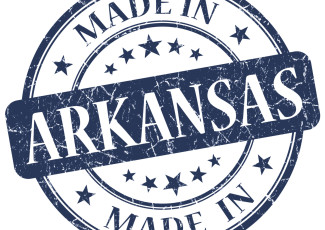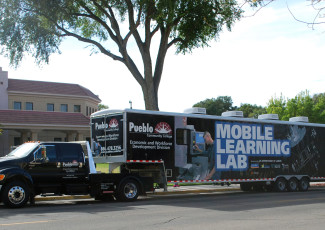3 Keys to Powerhouse Workforce Training
By Heather Boerner
July 27, 2015
How Global Corporate College helps community colleges — and what colleges can learn about corporate partnerships.
Since 2007, Andrew Meyer has devoted his time to helping community colleges take workforce training to the next level. As executive director of the nonprofit side of the Global Corporate College (GCC), Meyer recruits and helps build capacity at the about 50 community colleges in the network, so that they can provide the same high-quality corporate training to large corporations at multiple community colleges at the same time.
What Meyer has learned is that meeting the needs of industry requires entrepreneurial leaders, standardization and a different approach to marketing than most colleges take with their local industry.
“These are the things you’d expect from any member of a high-performing network,” says Meyer, who has a dual appointment with the League for Innovation in the Community College and the GCC. “But they’re not insurmountable.”
To find out how the GCC’s consortium helps bring high-achieving colleges onto a bigger stage, we asked Meyer to highlight the organization’s biggest lessons since the organization’s inception — and how college leaders everywhere can learn from those lessons.
Start with entrepreneurial presidents
The GCC works with community colleges on an invitation-only basis. That’s because the organization has to be sure that the colleges can scale up quickly and deliver the same training, in the same way, at different locations where large corporations have headquarters.
Almost always, the colleges that can deliver also have entrepreneurial presidents — and that’s not a coincidence.
Says Meyer, “When we issue these invitations, we’re issuing them to the presidents or the chancellors,” not just to the colleges or the locations. “We learned in the beginning that if you don’t have an entrepreneurial leader who can transfer the vision for this project from the chancellor or president to the next level, those colleges are not going to be responsive enough to the needs of companies.”
These leaders tend to do the legwork before starting work through the GCC to bring staff and faculty on board — an essential piece of the puzzle, Meyer says. “We don’t want a college president to say, ‘We’ll do it,’ without having an internal conversation. It needs to be processed, and there needs to be some buy-in.”
Scale up quickly for national impact
Colleges in this network may generate the corporate work themselves — or they may receive word from the GCC that a corporation wants training at their location, with curriculum developed by the GCC and delivered uniformly throughout the network. Either way, colleges need to be able to move quickly, find the right trainers with the right skills and deliver standardized training that matches the quality offered at other colleges in the network. Sometimes, trainers have been flown to GCC’s headquarters in Cleveland; more often, trainers participate in webinars to get up to speed. On rare occasions, GCC colleges have had to replace trainers who were not performing as expected at midcourse.
This is not an easy task. Meyer says GCC has had to have hard conversations with colleges that were not able to keep up with the demands.
“We can’t have a college put a local company in the GCC pipeline and then have a college in another state fall down on delivering what’s promised,” he says. “That company is not going to think about the college in the other state failing; it’s going to think, ‘There goes our local college; it said it could do this across our corporate footprint and it couldn’t.’ That’s why the notion of standardized, high-quality training is important. It’s the reputations of the colleges at stake.”
Flip the script on sales
Finally, one of the biggest ah-ha moments came early on, when Meyer realized the way corporate training sales officers had to work.
“Many of us who have supported this function at colleges thought for many years that we had people who knew how to sell businesses on workforce-contract training,” says Meyer, a former vice president at Anne Arundel Community College, in Maryland. “What we found is that what we really had were order takers — we had people who were very good at fielding calls from businesses and industry, being told what the industry needed and were able to fill those orders.”
GCC colleges needed something different: proactive consultations and strategic selling. College workforce-development sales managers needed to be selling industry on supervisor training and midlevel management training in addition to entry-level jobs.
“This space belongs to community colleges, not baccalaureate institutions, not grad schools,” he says. “This is the sweet spot for American community colleges. If these companies can come to us for English as a Second Language training, for entry-level supervisorial skills, they can come to us for management training for the C-suite, too. We can be that one-stop shop.”










